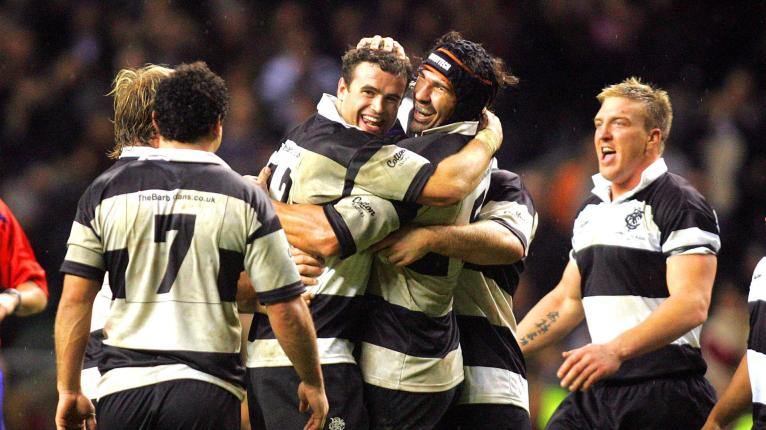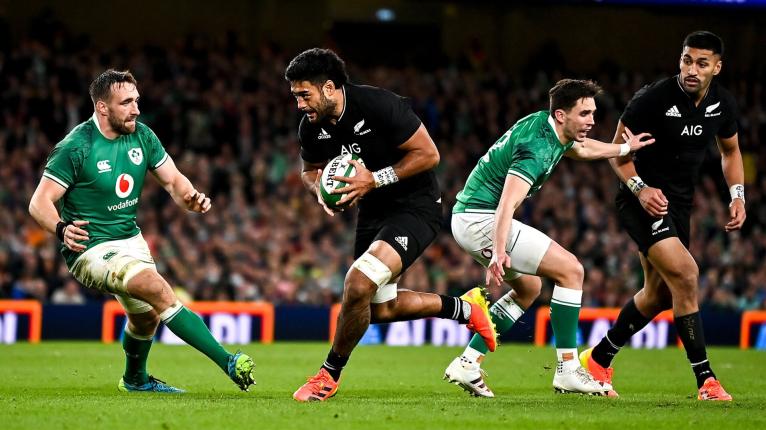Steve Hansen used to talk about “rocks under the beach towel”.
It was a reference to the last game of the calendar year.
Win it, and you can end on a positive and fly home to the delights of the New Zealand summer with a peaceful, easy feeling.
Lose it and it’ll feel like there’s an unshiftable lump under the beach towel for the entirety of your eight weeks off.
The expression was borne of a rather inconsequential loss to the Barbarians at Twickenham late in 2009. The All Blacks had beaten Australia in Tokyo, Wales, England, Italy and France, only for their second-string line-up to succumb to a happy go lucky Baabaas team made up almost entirely of South Africans and Australians.

Not a major test loss but still a defeat – and hence the reference to rocks under the towel. It has proved to be a useful motivational tool going into what is a potentially tricky game for a touring team, when minds may be wandering away from the gloom of the northern winter, a foot already in the doorway of the flight back to the sunshine, friends, family and yes, beaches of home.
It will no doubt be raised again in the coming days, and with good reason.
For the first time since the dismal end to their 1999 World Cup campaign, the All Blacks face the possibility of losing their final two matches of a calendar year.
Their defeat to Ireland has evened the scales of what was looming as a very good campaign. A win against France this weekend, and 2021 can still be deemed a success, given that they have retained the Bledisloe Cup – which is very important, won the Rugby Championship – which is quite important, and split two tight games with the Springboks – which is never unimportant.
Individual players will be up for scrutiny, which will be fun for the trolls and tragics of social media, but not so much for those in the firing line.
Lose it, and there will be a flare-up.
Having recently has his contract extended through to the 2023 World Cup, head coach Ian Foster will again have his credentials debated. Questions are already being asked, in particular, of their continued difficulty in navigating the rush defence.
And individual players will be up for scrutiny, which will be fun for the trolls and tragics of social media, but not so much for those in the firing line.
None of the above will motivate the team more than their own desire, but there is plenty on the line.
The loss in Dublin will especially stick in the craw of Sam Whitelock, being his first as captain.

It was he who pointed, without hesitation, to the posts for a close-range penalty to close the gap to three, after the All Blacks had, quite correctly, had a go-ahead try ruled out for a forward pass. It becomes one of those ‘what if?’ moments. The Gospel of McCaw says you take the three on offer, the Book of Hindsight says you weren’t going to get many more chances to take the lead, not the way the two teams were playing.
But make no mistake, Ireland were magnificent throughout.
We’ve always expected plenty of fire, passion, and force, with some brilliant players in the mix over the years, but this was next level, arguably the best ever by an Ireland team against the All Blacks. A notable rivalry has become a truly great one.
New Zealanders taking small pleasure from the performances of the Kiwi-born trio of Bundee Aki, James Lowe and the excellent Jamison Gibson-Park might also afford some credit to coaches Andy Farrell and Mike Catt.
The All Blacks will have little time to shake off the bruises and absorb the lessons of Dublin before taking on a French team that is arguably even more imposing physically, albeit, in keeping with tradition, rather erratic.
Doubtless not all Irish fans will be thrilled at having Englishmen in their coaching box, but they deserve admiration for the way they have expanded the Joe Schmidt game plan, empowering the players to explore the full width of the pitch, using clever wrap-arounds and offloads to put their opponents through exhausting periods on defence.
It was only the All Blacks incredible resolve that kept Ireland from building a lead more reflective of their dominance, to the point where they were still in the game with but a few minutes on the clock.
But the ruling out of the Akira Ioane try proved to be the last chance saloon, and there was to be no Great Escape this time. The better team won, fair and square.
The All Blacks will have little time to shake off the bruises and absorb the lessons of Dublin before taking on a French team that is arguably even more imposing physically, albeit, in keeping with tradition, rather erratic.
Much has been made of the amount of territory and possession Ireland had in Dublin, and while some of this was down to the work of the magnificent James Ryan and co at the lineout, it owed more to Ireland’s superiority at the breakdown, and a wayward All Blacks kicking game.

Too many important clean-outs were missed, allowing Ireland to pilfer, disrupt, or at least slow the All Blacks ruck ball down while sloppy passing and directionless kicking allowed Ireland way more ball than was healthy.
Those are problems that can be fixed, either through changes or better execution, but the bigger question is what is left in the tank?
The All Blacks have now spent three months in a bubble. Because of the New Zealand Government’s MIQ system they were not allowed to freshen up at home for a couple of weeks after Australia and had to stay in their capsule ahead of the Northern Tour.
Despite the way Foster rotated his large squad through the two ‘cash cow’ games, there was evidence of staleness in their effort against Ireland, and the massive defensive workload may have taken a toll beyond the injuries to Anton Lienert Brown and Beauden Barrett.
It will take a special effort to restore some vitality for the game at Stade de France and avoid that very uncomfortable feeling over the summer.


Comments
Join free and tell us what you really think!
Sign up for free